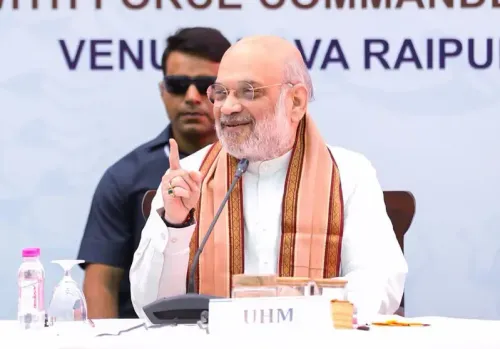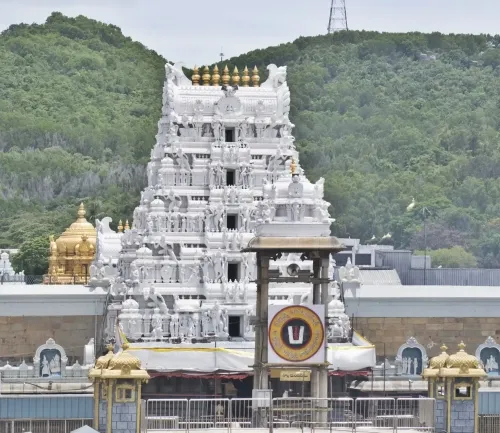Is India on high alert due to Imran Khan's situation causing chaos in Pakistan?

Synopsis
Key Takeaways
- High alert issued by Indian intelligence agencies.
- Rumors about Imran Khan's health are causing unrest.
- Potential for violence in Pakistan is increasing.
- ISI may orchestrate attacks in India as a diversion.
- Public dissatisfaction with the Army's governance is growing.
New Delhi, Nov 28 (NationPress) Indian intelligence agencies have put security forces on a high alert due to recent developments in Pakistan. Tensions are rising in the country amidst rumors surrounding the status of former Prime Minister Imran Khan.
Massive crowds are gathering outside the Adiala Jail in Rawalpindi, where Khan is imprisoned. Thousands of supporters from the PTI are demanding to meet their leader.
However, the Pakistan Army has denied the request for a meeting, while also dispelling the rumors regarding his death.
Intelligence Bureau officials reveal that rumors about Khan's death began circulating three days ago. This has led to a significant increase in the number of supporters rallying outside the jail. If the Army fails to provide the evidence his supporters are demanding, violence is likely to erupt across Pakistan.
An official stated that the potential for violence in Pakistan is real given the current climate. For India, any fallout from this situation poses a grave threat to national security.
Furthermore, an Intelligence Bureau official indicated that the ISI is strategizing a series of major attacks within India to divert attention from the unrest surrounding Khan. His enduring popularity means that if news of his demise proves true, the country could descend into unprecedented chaos.
Controlling the masses could become impossible for security forces, leading to a situation reminiscent of civil unrest. The Army is intent on suppressing Khan and all related issues.
However, sustaining this suppression may prove challenging as public anxiety grows, and citizens demand transparency. The Army's approval ratings, particularly under Field Marshal Asim Munir, have plummeted.
Officials noted that the public is being forcibly restrained, with the Army recognizing that a significant portion of the populace desires a change in governance.
Observers of Pakistan politics suggest that discontent is particularly high due to the Army's role in ousting Khan and establishing a proxy government led by Shehbaz Sharif. There is widespread disregard for democratic principles, and the public is increasingly vocal about their dissatisfaction, experts assert.
Indian officials have indicated the unexpected nature of the rumors surrounding Khan's death, placing the Army in a difficult position. The large mobilization of supporters suggests that the Army will struggle to contain the situation through force alone.
Authorities expect the Pakistan Army to seek time to manage the unfolding crisis. To achieve this, both the Army and ISI are likely to orchestrate attacks in India as a diversion.
Communications intercepted indicate an urgent intent to conduct a significant strike within India. The ISI is not aiming for a small-scale attack; it seeks an event comparable to the Mumbai 26/11 or Pulwama, ensuring that the focus of the Pakistani populace is redirected, as stated by another official.
Intelligence agencies have advised security personnel to closely monitor the eastern border. There is an uptick in ISI-related activity in Bangladesh, with new modules forming in collaboration with Lashkar-e-Taiba and Harkat-ul-Jihadi-Islami (HuJI) aimed at executing attacks in India.
Additionally, Pakistan is reportedly planning to send Hafiz Saeed to Bangladesh to motivate these operatives just before a major offensive. This tactic has been observed previously, notably before the Mumbai attacks.
In light of the current turmoil in Pakistan, the ISI appears desperate to create a diversion.
With the borders with Jammu and Kashmir and Punjab becoming increasingly fortified, the focus is shifting to modules in Bangladesh to execute a major attack in India. Officials believe that such a diversion could provide the Pakistan Army with the necessary time to address the Imran Khan situation, ultimately calming the public.









